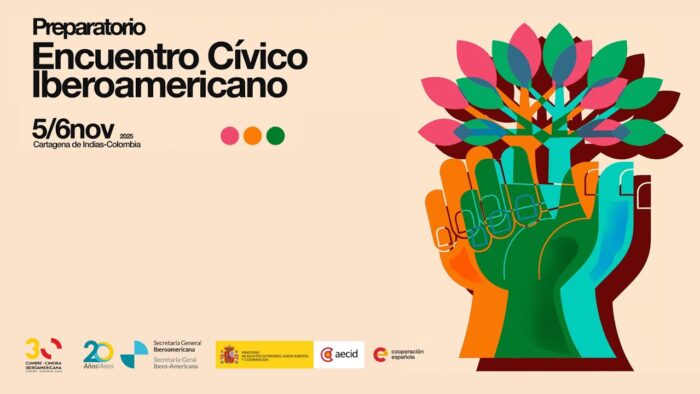¿Temes a la robotización laboral?
Cada vez es más común ver análisis y artículos que advierten sobre el impacto de las nuevas tecnologías en el empleo. Los hay desde los apocalípticos que afirman que los robots -ya sean las grandes maquinarias de la industria o simples cajeros automáticos- provocarán la pérdida de miles de puestos de trabajo; hasta los que sostienen que, aunque la automatización puede afectar ciertas tareas, este nuevo escenario implicará un cambio en la adquisición de habilidades y en lo que se enseña para adaptarse a las nuevas demandas del mercado laboral. Pero, ¿cómo se prepara América Latina para hacer frente a este escenario? Argentina y Uruguay han experimentado un cambio en el perfil del empleo, pasando de ser intensivo en tareas manuales rutinarias hacia tareas más cognitivas. Ello es producto del proceso de cambio tecnológico que ambos países vienen experimentando. El principal desafío de mediano plazo está en las tareas proclives a la automatización, asociadas a un preocupante incremento del desempleo tecnológico y al envejecimiento de la fuerza laboral. Entrevistamos a Ignacio Apella, experto en Protección Social del Banco Mundial y uno de los autores del estudio “Cambio tecnológico y el mercado de trabajo en Argentina y Uruguay: Un Análisis desde el enfoque de tareas”, para que nos explique los hallazgos en estos dos países y sus implicancias en el resto de la región. Pregunta. Según el estudio, el impacto del cambio tecnológico sobre el mercado de trabajo va más allá del empleo mismo, también tiene efecto en países con marcado envejecimiento poblacional ¿Cuál es la relación? Respuesta. Hace dos años iniciamos una investigación que trataba de entender cuáles eran los desafíos que plantea el envejecimiento poblacional en términos económicos en Uruguay y Argentina. Entre varios hallazgos uno que sobresale es que el proceso de envejecimiento plantea una restricción para sostener el crecimiento económico en el largo plazo. ¿Por qué? Porque una población más envejecida implica una menor cantidad de gente en edad de trabajar y por tanto menor capacidad de producir bienes y servicios. Una respuesta posible para sortear esta restricción es el incremento de la productividad laboral; es decir, aún con una menor cantidad de población en edad de trabajar, se puede producir más y de esa manera sostener el crecimiento del producto per cápita. Después de varias discusiones con los gobiernos de ambos países entendimos que este fenómeno que está ocurriendo se da junto otra mega tendencia que es el cambio tecnológico. Este existe desde que se inventó la rueda, el tema es que en los últimos 20 o 30 años se da con mayor velocidad. Y eso es una gran oportunidad que tienen los países que están atravesando este proceso de envejecimiento, porque el cambio tecnológico te permite incrementar la productividad global de la economía, que es lo que estamos buscando en este contexto. El problema es que esta gran oportunidad también implica grandes desafíos por sus efectos en el mercado de trabajo. Entonces a partir de eso tratamos de entender con este último estudio cuáles eran esas implicancias, los riesgos y los desafíos tecnológicos sobre el mercado de trabajo. P. La robotización tiene un impacto directo en el mercado laboral, lo que está requiriendo más mano de obra calificada. ¿Cómo se presenta este desafío para elevar la productividad laboral? R. Cuando se habla de robotización no se habla del gran robot que podemos ver en la Boston University, hablamos de un cajero automático, de un traductor online. Cuando hablamos de robots se trata de máquinas físicas y las digitales. Hay que aclarar que la robotización no hace desaparecer ocupaciones, o puestos de trabajo, lo que reemplaza son tareas que los trabajadores desarrollamos en las ocupaciones. Cualquier trabajador desarrolla en su trabajo un conjunto de tareas, que son diversas. Las máquinas vienen a reemplazar algunas de ellas. En este sentido, el tipo de tareas que la automatización puede reemplazar o sustituir son aquellas que se caracterizan por ser rutinarias, que tienen un conjunto definido de acciones que se repiten invariantemente y eso las hace susceptibles de ser automatizadas. El riesgo que enfrenta el mercado de trabajo es una reducción del empleo destinado a la realización de este tipo de tareas rutinarias. En especial las manuales, aunque tampoco se eximen las cognitivas, es decir aquellas que requieren del conocimiento. En este caso doy el ejemplo de los traductores. La ocupación es la de traductor, y una de las tareas que realiza es identificar la frase, su estructura gramatical y traducirla. Esta es una tarea cognitiva, pero es rutinaria. Un traductor online puede realizar esa tarea. De hecho, los traductores digitales ahora lo hacen mucho mejor que hace 10 años atrás debido a que van aprendiendo patrones de comportamiento, los cuales son incorporados por los propios usuarios. Entonces, no son solo las tareas rutinarias manuales las que están en riesgo sino también las de carácter cognitivo. P. ¿Cuáles son las recomendaciones para hacer frente a esto y como garantizar que un país en envejecimiento cuente con una población en edad laboral que está lo suficientemente preparada para aprovechar el cambio tecnológico? R. El cambio tecnológico es bienvenido, porque permite incrementos de productividad de la economía y de esa manera genera capacidad para crecer, pero puede traer -a diferencia de la primera revolución industrial- una mayor desigualdad en la distribución del ingreso. El mercado de trabajo corre el riesgo de polarizarse. Esto significa que quedan dos grupos de trabajadores: los que tienen altísima calificación y que desarrollan tareas no susceptibles de automatización, es decir las tareas cognitivas no rutinarias (que necesitan del uso del pensamiento crítico, resolución de problemas, creatividad, innovación, relaciones interpersonales) y que se asocian con altos ingresos. En el otro extremo queda un grupo de trabajadores de menor nivel de calificación, que se dedica a la realización de tareas que quedaron remanentes en el mercado, en general, las manuales no rutinarias que no son susceptibles de ser automatizadas pero que generan menores ingresos. En el medio, los trabajadores de calificación media y de ingresos medios corren el riesgo de quedar fuera del mercado. Y en es en este tramo donde se ubica la clase media, empleada en los sectores de servicios y la industria. A partir de este diagnóstico entendemos que hay dos grandes desafíos, uno de corto plazo y otro de mediano y largo plazo pero que requiere de acciones ya, en especial teniendo en cuenta la velocidad con la que transcurre este cambio tecnológico. En el corto plazo, el primer riesgo es el desempleo tecnológico que se puede generar. Aquí hay dos alternativas de política pública para ser evaluadas: la primera es la restricción, es decir, proteger aquellos sectores que son intensivos en aquellas tareas susceptibles a ser automatizadas, de manera tal que la automatización no penetre en esos sectores y por lo tanto no desplace trabajadores. En vista del continuo cambio tecnológico, el esfuerzo que se debe hacer tiene que ser continuo y también los son los costos de la intervención. Se ha hecho, hay actores de poder que juegan y presionan y tienen algún tipo de injerencia, pero no me parece una opción efectiva en el corto plazo. Alternativamente, y me parece más eficiente, es mejorar todos los programas de formación continua, los que otorgan habilidades a los adultos jóvenes a fin de poder readaptarlos a las nuevas condiciones de trabajo y que puedan desarrollar otro tipo de tareas que no estaban acostumbrados. En el largo plazo, el desafío es que, en vista de que todo cambio genera ocupaciones nuevas que no podemos vaticinar, no sabemos cómo formar a los niños de hoy. Creemos que vale la pena repensar el sistema educativo en su conjunto en los tres niveles -primera infancia, primaria y secundaria – como un todo, tratar de evaluar la pertinencia de los contenidos que se enseñan y también mejorar el sistema a través del cual se otorga y se adquiere el conocimiento. Tenemos que cambiar de un sistema de memorización a uno de más análisis crítico. A los niños se les sigue exigiendo que estudien de memoria cuando en realidad tenemos un disco rígido de 1 terabyte con mayor capacidad de memoria que uno. Esa es la discusión que se debe plantear. Es difícil, hay actores en el juego que reaccionan, pero me parece que es un debate que hay que ponerlo en la mesa.


